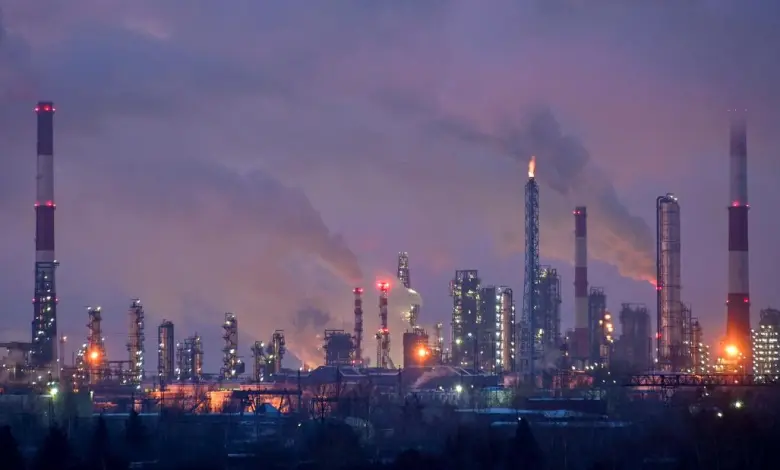Over the weekend, some of the top oil exporters in the world startled the markets by declaring they will reduce their daily oil production by more than 1.6 million barrels.
The Organization of the Petroleum Exporting Countries (OPEC) and a group of non-OPEC oil-producing nations, such as Kazakhstan, Mexico, and Russia, announced an alliance called OPEC+ on Sunday, announcing that the cuts would start in May and last until the end of the year. The news caused the US benchmark WTI and the global benchmark Brent crude futures to both rise by about 6% on Monday.
In order to coordinate and control oil production and maintain world oil prices, OPEC+ was established in 2016. Around 40% of the world’s crude oil is produced by its members, who also significantly influence the global economy.The decision by OPEC+ to reduce oil production may have significant effects for Russia.
The United States and the United Kingdom promptly stopped purchasing oil from Ukraine after Russia’s invasion last year. The import of Russian oil transported by water was also stopped by the European Union. Russia’s oil export prices have been capped at $60 per barrel by the G7, an association of leaders from some of the biggest economies in the world, including Canada, France, Germany, Italy, Japan, the United Kingdom, and the United States.
This artificially lowers Russia’s income. Several analysts have predicted that the US and other western countries may need to loosen that price cap if oil prices keep rising.
Janet Yellen, US Treasury Secretary, stated on Monday that the modificationscould — but hasn’t yet — lead to a review of the price cap. She told reporters, “I don’t see it as acceptable at this point, but obviously that’s something that might be amended once we’ve concluded that a revisit is warranted.”
This week’s OPEC+ declaration was unexpected. Saudi Arabia had previously stated that its production quotas will remain the same through the end of the year, while the group had already announced plans to reduce production by 2 million barrels per day beginning in October 2022.
According to Warren Patterson, head of commodities strategy at ING, “the move to cut supply is pretty odd.”
According to developments in the banking industry, “oil prices have somewhat recovered” from the volatility in the financial markets, he stated.





